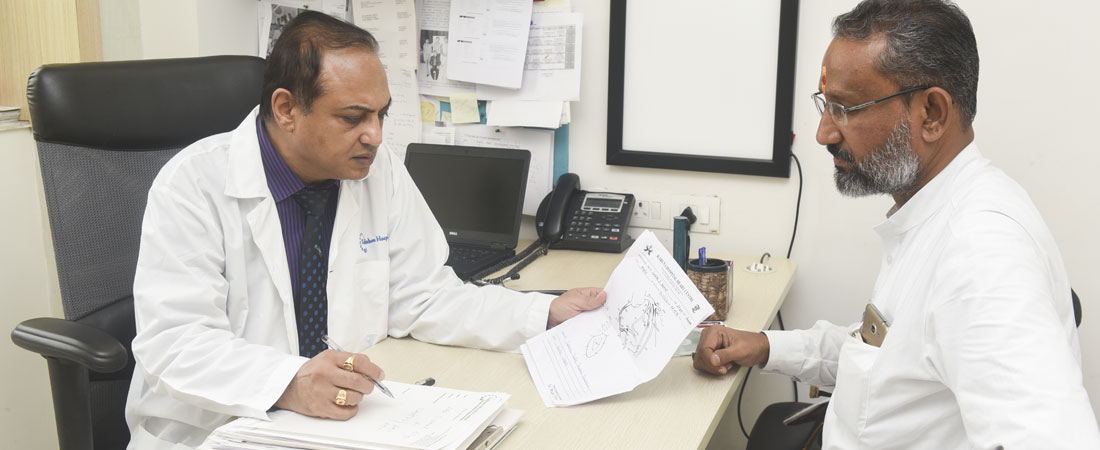Heart failure affects more than 20 million people in India. The heart fails to pump sufficient blood to provide oxygen and nutrients to tissues and they present with breathlessness, palpitation and leg swelling.
Pregnancy (post-partum cardiomyopathy), viral infection of heart (myocarditis), disease of arteries of heart (coronary artery disease), diabetic are common causes of heart failure. Despite maximum medical or surgical therapy, 60 per cent of all heart failures die in 5 years. A battery of very sophisticated investigations is needed to figure out the reversible cause of heart failure. Anti-failure drugs are useful as viral myocarditis, post-partum cardiomyopathy, post chemotherapy cardiomyopathy is reversible in some cases while coronary angioplasty or coronary bypass surgery may benefit patients with coronary artery disease with heart failure. Majority of patients continue to deteriorate despite maximal medical therapy, out of which a good number can still benefit from special pace makers called biventricular pacing, ICD or combo devices.
Why Heart Transplant?
When maximum therapy fails, heart transplant is only curative therapy to avoid sudden death and good quality life. Once patients are identified for heart transplant, they are put on the waiting list. When a suitable donor is available, thorough matching is done between patient and donor. Heart transplant surgery is like any other open heart surgery. Once diseased heart is replaced with new healthy heart, these patients recover very fast and go back to routines and office work in less than 2 months.
Kokilaben Dhirubhai Ambani Hospital is having a large volume heart transplant unit, well-supported by 45 doctors, nurses, paramedicals, transplant co-ordinator with Advanced Heart Failure Clinic, Cardiac Rehabilitation Centre, and Immunology Laboratory.
Rejection surveillance after heart transplant
Clinical examination, ECG, Echocardiography with some cardiac markers are basics to diagnose and treat early rejection. Endomyocardial Biopsy is invasive and costly examination, necessary at times. Now Heart Transplant Rejection surveillance is done using several adjunct non-invasive investigations based on electrophysiology, magnetic resonance imaging, biochemical markers, and gene expression profiling. The introduction of mycophenolate mofetil (MMF), tacrolimus, cyclosporine microemulsion, sirolimus, rapamycin protein inhibitors, new generation monoclonal antibodies (anti-interleukin-2 receptor antagonists, daclizumab, basilix-imab, alemtuzumab), OKT3, and polyclonal biologic thymoglobulin has significantly increased our ability to fight rejection and achieve long-term survival.
Interstitial lung disease, Chronic Obstructive Lung Disease is leading cause of lung failure. Lung transplant is only curative solution for these conditions when medical therapy fails. Lung transplant can save many lives if these patients are referred in time to Lung Transplant Unit. Kokilaben Dhirubhai Ambani Hospital has one of the largest Lung Transplant Unit, well-supported by Pulmonology services and Pulmonary Hypertension Clinic.
Testimonial
I was suffering from end-stage heart failure. My doctors at Baroda told me that I may die anytime. Heart Transplant is the only solution I was told. I met Dr Nandkishore Kapadia, Director of Heart and Lung Transplant at Kokilaben Hospital, Mumbai, who encouraged me for same. I got new heart and new life on 4th August 2016. I have fully recovered since then and living healthy and normal life. Kudos to Kokilaben Hospital’s Heart Transplant Team, headed by Dr Nandkishore Kapadia. My sincere thanks to Dr Nandkishore Kapadia, Dr Jamshed Dalal, Dr Praveen Kahale, Dr V. Lad and all supporting Nursing staff.
Mr Rajesh Shah
Dr Nandkishore Kapadia
MBBS, MS (Surgery), MCh (Thoracic Surgery), FIACTS, FSTS, FACC, PhD
Director – Heart & Lung Transplant Unit


